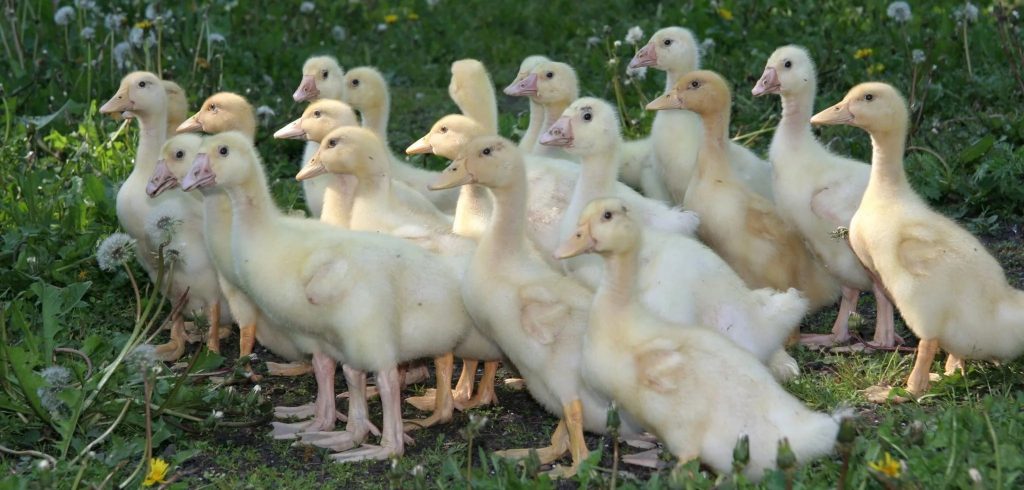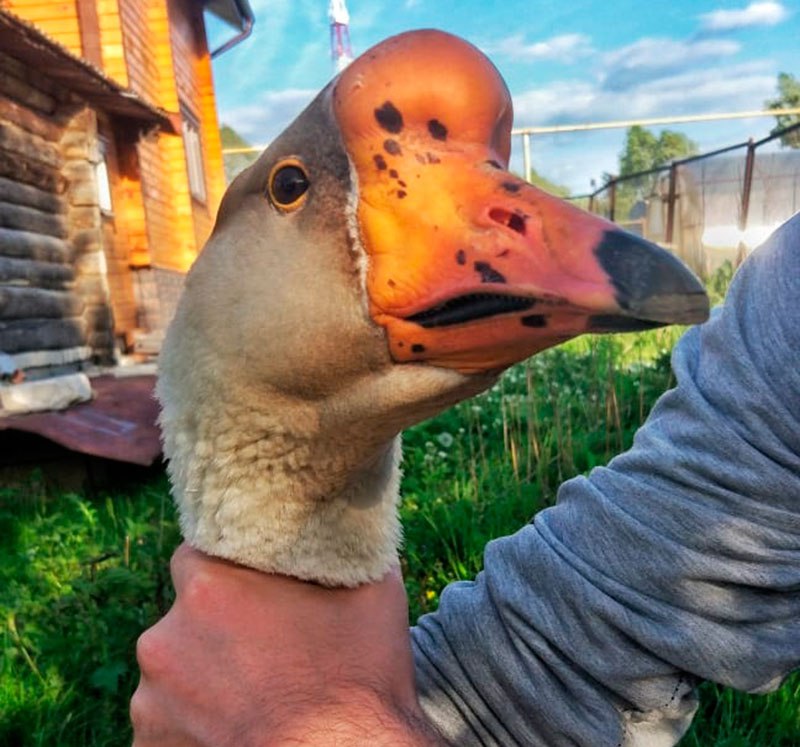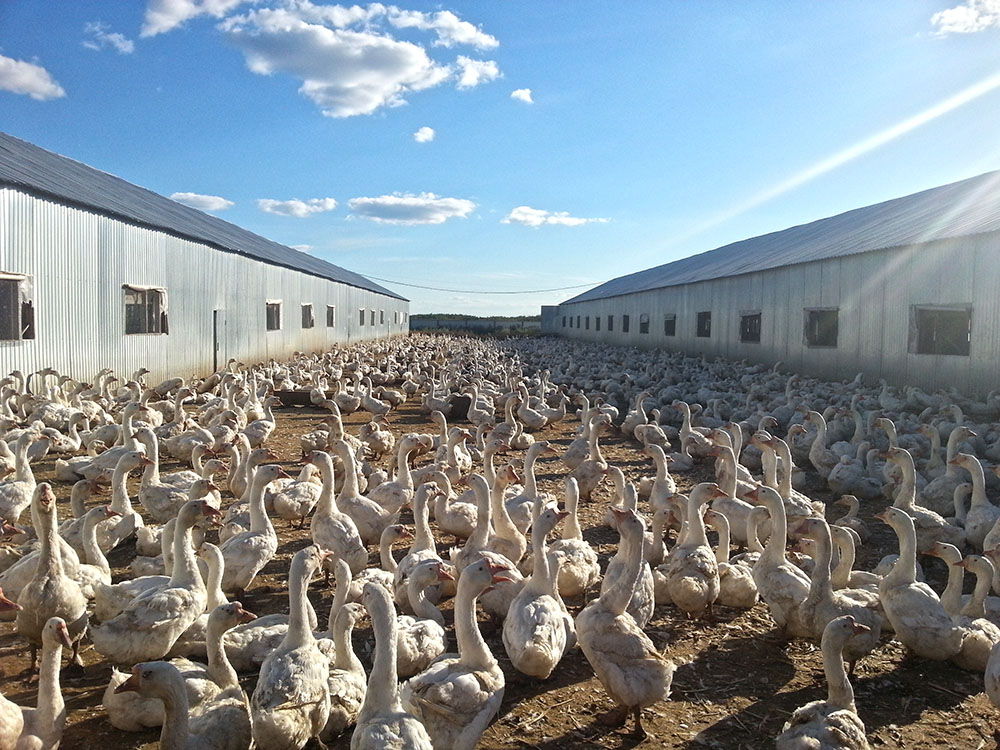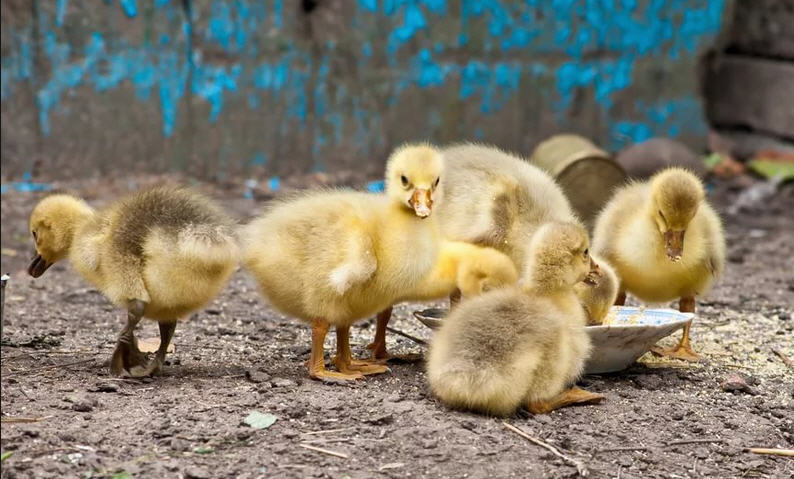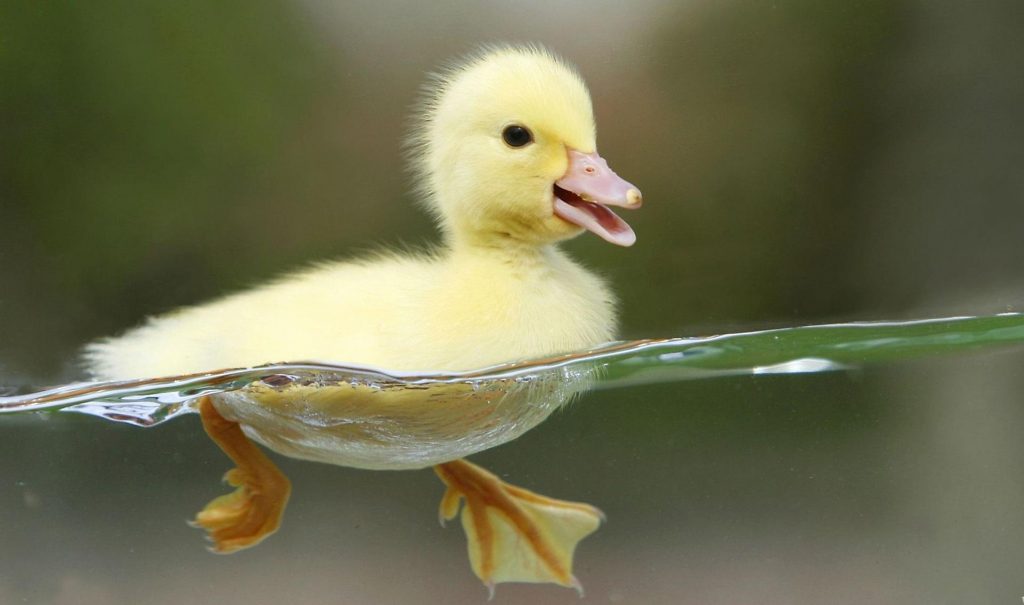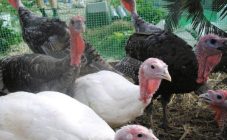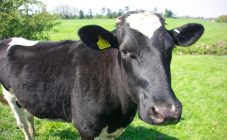Diseases of geese are encountered both by those farmers who professionally breed them, and those who breed this bird for their own consumption. Geese are considered to have a fairly high immunity, but still they are not immune from all sorts of infections. The most difficult thing is to treat small goslings, as the disease spreads very quickly and the bird dies. In addition, babies have fragile immunity, they simply cannot fight some types of diseases.
Diseases
Diseases of goslings have several origins. Some diseases are caused by bacteria, fungi, and infections. These diseases are transmitted very quickly. Other illnesses can be caused by poor quality food.
Frequent infectious diseases of goslings are:
- Goose viral enteritis;
- Salmonellosis;
- Pasteurellosis;
- Neisseriosis;
- Aspergillosis;
- Colibacillosis;
- Heminolepiasis.
Diseases that are not transmitted from one bird to another are:
- Perosis;
- Rickets;
- Obstruction of the esophagus;
- Cutaneous pests;
- Worms;
- Poisoning of poultry with poor quality food.
Diseases of geese, symptoms and treatment have long been known to all veterinarians. Many ailments are treated at home. Often farmers ask themselves: "Why do geese drop their wings?" This symptom indicates that the bird does not have enough vitamin supplements. It is enough just to dilute the water with vitamin chiktonics, and the problem will go away by itself.
To the question: "Why do goslings lose down on their backs", the answer is quite simple. So why do the goslings go bald? The fact is that they themselves rip out the fluff from each other. To prevent this problem, goslings should be given more freedom. They should walk on a large enough area so that there is no grouping. They just need to pinch the grass, and if this is not possible, they begin to pinch each other.
Disease Symptoms and Treatment Methods
Veterinary clinics will tell you how to treat goslings. Goslings can get sick from any farmer, even the most attentive and cautious. Salmonellosis is considered a dangerous disease. Infection occurs through airborne droplets, as well as through feces. The symptoms of this disease are as follows:
- Thirst;
- Refusal to eat;
- Wings drop;
- The goose becomes lethargic;
- Lack of desire to move.
Adults tolerate the disease more easily than young ones. Salmonellosis serum for geese can be purchased at the pharmacy. Traditionally, they are soldered with furazolidone. Antibiotics such as tetracycline and biomycin are also used.
Enteritis is considered a serious illness for poultry. It is a viral disease that is spread through contaminated water and faeces. Disease symptoms:
- Goslings have a twisted neck;
- Discharge with blood appears;
- The chicks start to fall;
- Yawning appears;
- It is difficult for the bird to breathe;
- The bird loses its appetite.
Treat the disease with vaccines, which are pierced in two steps.
The first signs of pasteurellosis, or cholera, are:
- The appearance of mucus under the beak;
- Lack of desire to eat;
- Wheezing;
- Runny nose;
- Stool with blood;
- Eversion of the head, etc.
The disease is treated only with antibiotics. The pharmacy can advise the drug Enroflon. The dosage of enroflon for goslings is 0.5 ml per liter of water. For adults, the dosage is doubled.For prevention, the bird is vaccinated, and the room in which the geese live is regularly disinfected.
Goslings can be sick with Neisseriosis. The cause of the disease is streptococci and staphylococci. Symptoms may not appear until a month later. The bird can be observed:
- Sinusitis;
- Snot;
- Puffy cheeks
- Mucus under the nose;
- The penis becomes swollen and twisted.
The disease cannot be treated. Sick individuals are sent to the isolation ward, and disinfection is carried out in the common room.
There is another disease for which no cure has yet been invented. It is called a whirligig. When a gosling begins to hurt with a twirl, the following symptoms appear:
- Chicks become lethargic;
- Fever appears;
- Interest in food disappears;
- Loss of vision;
- Wheezing and coughing appear;
- Convulsions appear;
- Paralysis of the limbs.
In order to prevent the bird from getting sick with a twirl, you need to take preventive measures in the form of vaccination.
Such common diseases as: coccidiosis, histomonosis, trichomoniasis, appear in the presence of parasites. An effective antiparasitic drug is metronidazole. In the instructions for the drug you can read how to give metronidazole to goslings.
Another disease caused by parasites is amidostomosis. The cause is a parasite that settles in the upper part of the bird's esophagus, which causes the bird to stop consuming food and water. So what if the gosling doesn't eat or drink? Water with serum dissolved in it is poured into their beak. Also, such drugs are dissolved in water: tetramisole, piperazine and pyovetrin.
Coccidiosis in goslings is similar in symptoms and treatment to amidostomosis. An exception to the symptomatology is that in young animals a wing begins to hang, impaired coordination appears, which can ultimately lead to paralysis of the legs. The disease manifests itself on days 6-8. To treat this disease, coccidiostatic drugs are used with which the bird is drunk.
Quite often, goslings develop conjunctivitis. It is expressed in redness and the appearance of pus in the eyes. They become swollen and inflamed. For the treatment of this disease, ointments are used: tetracycline and chloramphenicol.
Pullorosis manifests itself in weakness, lack of activity, interest in food, feces with an admixture of white mucus, inflammation of the joints. For the treatment of pullorosis, drugs such as terramycin, biomycin, furagin can be used.
Why the gosling wheezes, can tell its location, age and temperature of the water that it drinks. Most often this is a common cold, since the goslings are covered with fluff. Even at an air temperature of 22 degrees at night, young animals can catch a cold. Moreover, if the age is a little more than a month, this is even more realistic, since it is during this period that the goslings are very vulnerable.
Diarrhea is also common in goslings. Symptoms include loose stools, impurities in the stool, mucus in the stool, and a strong foul odor. The disease should be treated immediately when symptoms appear, since severe dehydration is extremely dangerous for young chicks. The causes of diarrhea are the use of poor-quality feed, hypothermia, obtained in a draft or in rooms with low temperatures. It is recommended to carefully monitor the quality of food, the amount of salt it contains, since oversalted food very often provokes food poisoning and indigestion in geese.
You should not treat the bird on your own, since you can choose the wrong dosage of the drug, which will further exacerbate the problem. The best solution to the problem would be to call the veterinarian. Before the arrival of the veterinarian, the bird is fed with boiled soft potatoes, which have a strengthening effect. An upset stomach caused by hypothermia is treated with a weak solution of potassium permanganate, which replaces the water in the bird's drinking cup. In case of infectious diarrhea, geese are treated with antibiotics for 4-5 days.For indigestion caused by worms, treatment with antihistamines is performed.
As a preventive measure, geese can be drunk with a vitamin complex 3-4 times a year. This will help prevent many diseases and boost immunity. Vitamin complexes will help you pick up at a veterinary pharmacy. For each age category of birds, there are dosages, which are indicated in the attached instructions.
Maintenance and care of goslings
Diseases of goslings and their treatment at home require some knowledge and skill. If the bird encounters the same disease more than once, it is recommended to change the treatment tactics and try to give the goslings other drugs of a similar effect. Little goslings are especially susceptible to diseases. During their short life, they did not have time to acquire strong immunity, so chicks get sick much more often than adults. Many diseases develop into chronic forms, which is fraught with the fact that new chicks will be constantly infected. Geese, which are carriers of diseases, are moved to a separate incubator.
Geese love cleanliness in the rooms where they live. It is recommended to disinfect the bird's home once a week. Goslings should be walked daily to avoid grouping and worm infestation. Over the long period of geese stay in a closed room, waste accumulates, as a result of which the risk of infection with helminths increases several times.
In addition, young animals need fresh grass to strengthen their immunity. Goslings should be fed before bedtime, as if fed in the morning, the goslings will lose activity and will not graze on fresh grass. Also, in the place where the goslings live, it is necessary to install lighting so that the bird can freely find food and water.
It is recommended to accustom the bird to a regular diet, because it can confuse the period of sleep and wakefulness. The most important conditions for caring for goslings and adults is bird walking. The bird can be denied evening feed, but walking on fresh grass cannot be limited.
